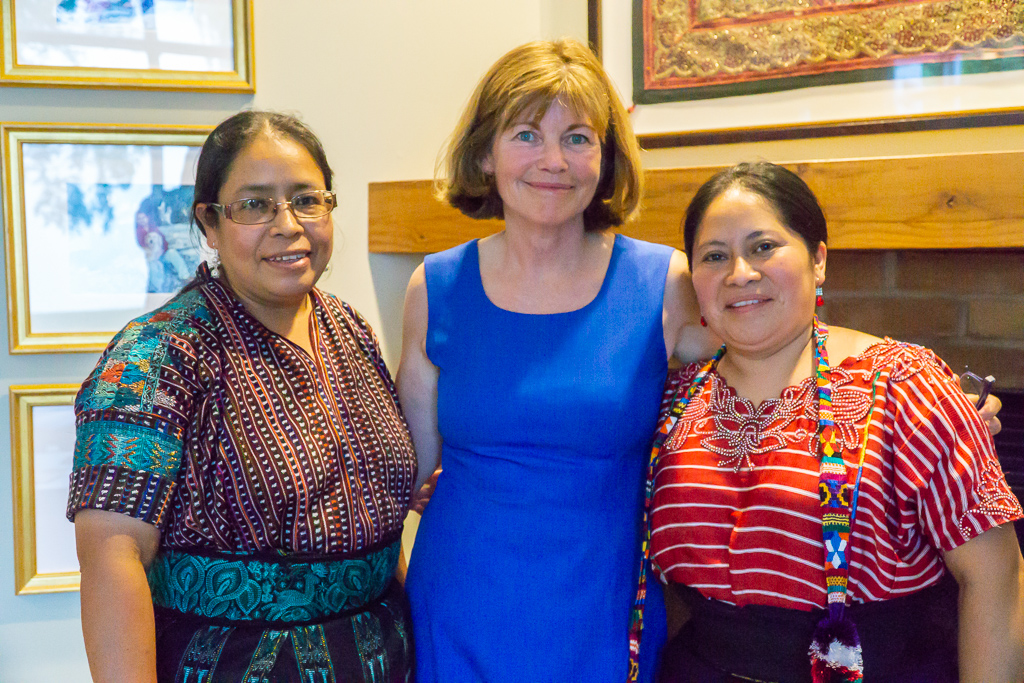Stories of Change - Champions for Women & Children's Health
Linda meets with Maya K’iche’ women and their children during household visits on Horizons’ knowledge exchange.
“It took us almost an hour of trudging along a dusty, rural path to arrive at the house. We followed the local nurse into the small home. A pregnant Mayan woman sat on the bed and warmly greeted our small group with a few words of K’iche.
A traditional Maya K’iche’ midwife teaches a pregnant woman about the warning signs of a high-risk pregnancy during one of her household visits.
My husband Mark and I had joined Horizons of Friendship for a 10 day educational knowledge exchange in the Department (province) of Totonicapán, located in Guatemala’s Western Highlands. We had always wanted to participate in an international development initiative and when our local organization, Horizons of Friendship, announced the Maternal, Newborn, and Child Health Project, supported by the Government of Canada, we were eager to join..
Before we left on our trip we learned that Maya K’iche’ women were twice as likely to die in childbirth as non-Indigenous women and 4 out of 5 children under five in Totonicapán suffer from chronic malnutrition. Close to 80% of the population live in poverty.
The MNCH project provides nutritional supplements to young children aged 6-24 months to help alleviate chronic malnutrition.
Our group included doctors, nurses, midwives, a women’s health promoter and a community advocate as well as experienced staff from Horizons of Friendship. Our days were full of activities: visiting young families to talk about maternal and child health, touring a relatively new but severely under-resourced hospital, participating in a school information session on sexual and reproductive health and rights, and observing first-hand the practices of the traditional Indigenous midwives.
Dr. Mark Essak meets with students after a presentation on gender equity and sexual and reproductive health and rights.
What surprised us most was discrimination as seen in the lack of medical and educational resources made available to the Maya K’iche’ people. We were pleased to be a part of a project that seeks to empower Indigenous people in Totonicapán, especially the traditional Indigenous Maya K’iche’ midwives through training, teaching materials and equipment.
Returning to Canada, we knew that we wanted to tell the story of how the lives of Maya K’iche’ families in Totonicapán are being transformed. We planned an evening at our home and coordinated the timing with the reciprocal knowledge exchange of two Indigenous Maya K’iche’ women, a traditional midwife and a midwife trainer, to Canada. It was a wonderful spring evening and our guests learned from Veronica Mazariegos and Antonia Buch how comadronas are working to improve maternal and newborn health in rural areas.
Antonia and Veronica were hosted by Linda and Mark to share their stories and experiences with Cobourg, Ontario residents.
Our guests donated over $10,000 to the MNCH project and with the generous Canadian Government matching each dollar donated with 6 dollars, our evening generated over $73,000!
We encourage everyone to donate to this wonderful project that is helping to save the lives of Maya K’iche’ women and children in Totonicapán!”





